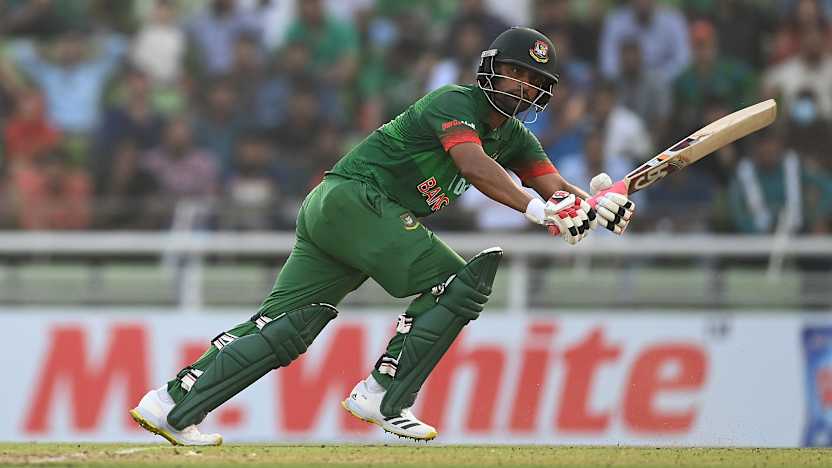Why is Pat Cummins’ Australian team not unequivocally loved in Australia?

Early morning, a chat bubbles up at the central market, couple of kilometres from the Adelaide Oval cricket stadium. Established in the late 1800’s, it’s a large indoor market for fresh produce – vegetables, cheese, spices, fruits, cafes, and whatever else one can think of eating.The talk starts about weather as Friday, the opening day of the second Test, is supposedly set to see some rains. Archie, possibly in his 60’s, isn’t too happy. Not with the forecast but with the Australian team. “Don’t worry, even if two days gets washed out, this Australian team will lose in just three days. Too bloody soft. Too woke. And now they are in-fighting also.” And he is off poking at what seems a rather oversized cabbage.It’s not a random cabbage-loving fan that is talking on those terms. For a while now, Pat Cummins’s Australian team has been copping it amongst a certain section of fans, media, and even former cricketers. ‘Captain Woke’, ‘UnAustralian’, ‘Too soft’, ‘Too friendly’ and such. And this is a team that has won nearly everything under the sun: Test championship, ODI World Cup, T20 World Cup.AdvertisementEstablished in the late 1800’s, it’s a large indoor market for fresh produce – vegetables, cheese, spices, fruits, cafes, and whatever else one can think of eating. (Photos: Sriram Veera) Established in the late 1800’s, it’s a large indoor market for fresh produce – vegetables, cheese, spices, fruits, cafes, and whatever else one can think of eating. (Photos: Sriram Veera)The loss at Perth Test has already kicked up such talk again from the former cricketers and fans. Bizarrely, a stray comment from Josh Hazlewood – he said before the final day’s play at Perth that “it’s now upto the batters” – has been blown out of proportion. Media interpreted it as a hint to a full-scale divide in the team. Player after player have been forced to refute it in media interactions. But the damage has been done.Why is this Australian team not so loved at home but liked more outside the country? That question is posed to Greg Rowell, a Cricket Australia board member involved in strategising and a former first-class player who had taken Sachin Tendulkar’s wicket in a Prime Ministers XI game in 1991. Rowell takes a measured pause and corrects the question. “By a certain section of older fans and older former cricketers here,” he tell The Indian Express.“They are used to the old Australian way of playing. And what goes with it: the hard sledging, being not just tough but seen as being tough and there is a difference there, a touch abrasive to the opponents that’s defined as not giving a quarter to the other team. To be fair to that generation of cricketers, it was the way cricket was played here. Snarl more, less smiles, and reserve the nicer side after stumps.“It’s part of the Australian cricket identity. It comes from our past, the weather – we had to prove to the English in those years, the hot sun comes into it too, and it was how, not just international cricket, but first-class and backyard cricket too was played even between brothers. Cricketing fans outside the country might have misconstrued it because cricket perhaps in say India or West Indies was more fun, a sport – we Australians saw it a bit differently. I would say it was a cultural difference,” Rowell says.AdvertisementAnd now even as Australia is striving to be more diverse and if possible be inclusive in that diversity, Pat Cummins’ team probably should be poster boys of that brave new world. But they aren’t.“True. This team does play differently and I would say Australia as a cricketing country needed to. In the past, cricketers had gone a bit too far and alienated even some parts of the cricketing world,” Rowell says. He doesn’t mention the incidents but that straying too far was reflected in the sandpaper gate, too much unsavoury sledging, and a certain roughness about the teams. “We had to pull back and this team does it naturally, organically. Pat is really that sort of a guy.”Bizarrely, a stray comment from Josh Hazlewood – he said before the final day’s play at Perth that “it’s now upto the batters” – has been blown out of proportion. Media interpreted it as a hint to a full-scale divide in the team. Player after player have been forced to refute it in media interactions. But the damage has been done. (Photos: Sriram Veera) Bizarrely, a stray comment from Josh Hazlewood – he said before the final day’s play at Perth that “it’s now upto the batters” – has been blown out of proportion. Media interpreted it as a hint to a full-scale divide in the team. Player after player have been forced to refute it in media interactions. But the damage has been done. (Photos: Sriram Veera)Cummins in particular has copped a lot from many Australians for questioning the sponsorship of the Australian team by a coal-powered energy company Alinta. As it happenned Cricket Australia’s deal with them ended and even though the company said it was a move decided before Cummins’s statements; media and fans had piled on the Australian captain. “Climate catastrophist clown with far-left views,” screamed Sky News Australia and social media called him “Captain Woke”. Australia Advance, a far-right media, snarled in a piece, “Shut up Cummins, and focus on winning a few games”.It propped up again when Cummins and his team took the knee for ‘Black Lives Matter’. Not that he was flustered. “I don’t even know what Woke means. If anything some people would say it’s a good thing. It’s a label, means nothing. If anyone thinks it (taking knee for black lives matter) is a bad thing, then those five minutes out of our lives is the worst thing that can happen to them, we don’t care.”AdvertisementIn Perth, the former cricketers went after the team for their “body language” on the second day’s play during India’s second innings. “This team plays as hard as any,” says Rowell. “They just do it differently, quietly, that’s all. Some of the Indian greats like Tendulkar or Dravid, they weren’t at opponent’s face all the time, were they?”A Australian player who has copped a bit for that “quietness” on the field is Alex Carey, the wicketkeeper. For a country that has seen dynamic glovesmen like Rod Marsh, the embodiment of the quintessential Aussie cricketer, doughty Ian Healy, the swashbuckling Adam Gilchrist, or even the eccentrics like Tim Zoehrer; Carey can come across as quiet as mouse behind the stumps. Or in his rather earnest schoolboyish image. Never mind that he was the man who ran out Jonny Bairstow, who had stepped out to gardening the pitch in an Ashes Test, his relationship with the irate section of Aussies hasn’t really warmed up. On Tuesday, he was asked what’s his relationship with the Australian fans.“I really don’t know. There were some who patted me and wished me luck here in Adelaide. I know I am not liked in England,” he says with a smile. “But I don’t know how to answer that question. I am just myself. The team knows me, I am not that sort of the guy (referring to whether he feels the need to chirp more from behind the stumps). So, I just cut out the external noise and do my thing. Iam just being myself.”That’s exactly what Cummins has been trying: to make his players be themselves. If that means the vegan Adam Zampa is uncomfortable about being a face for KFC or if someone in the team has an opinion about climate change. A soft team wouldn’t have done what Carey did to run out Bairstow, a soft leader won’t have the courage to bowl first in a World cup final in Ahmedabad. Australians of the past used to impose their ego on the opponents. Australians, under Cummins, try to use the ego of the opponents, sucking them into mistakes.Advertisement“This is a smart team which has won so many titles, but I fear the old generation of players, and perhaps fans from that era, might not warm up to this team,” Rowell says. “But as I said the teams had overstepped in the past. We had to pull back. And this team does it. This Australian team is more loved around the cricketing world, and that’s important. Australianism is not a fixed concept. It keeps changing. The world is changing. The older Australian cricketers who have a problem with the team would hopefully realise it.”Considering they haven’t even when this Australian team has been winning everything, it does seem rather optimist. But to leave the definitions of Australianism or the Australian way to an older section of people, be it fans or cricketers, is not ideal. Cummins knows it as he once put pithily, “What is this supposed Australian way, I don’t know”. The problem is that the cabbage-hunter in the old Adelaide market thinks he knows it, and so this tussle between the new and old is likely to continue in this sun-burnt country for a while yet.




.jpg)





